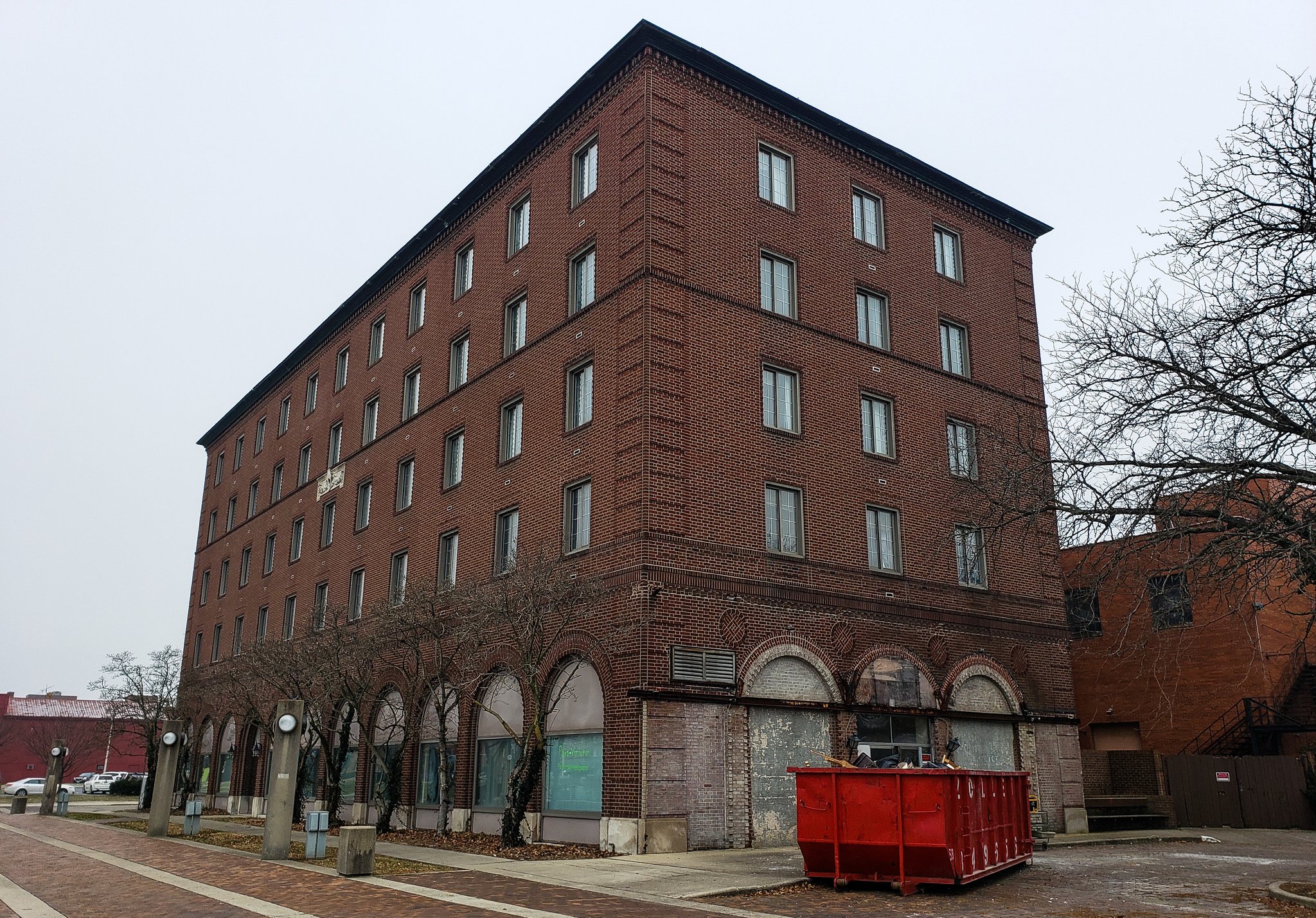The city may own the Manchester Inn and Snider Ford/Sonshine Building again.
After selling the two downtown properties four years ago to an Illinois-based developer for redevelopment for $1, Middletown officials said will be invoking a reverter clause to take the buildings back.
City officials sent William Grau of Historic Urban Development, LLC, a notice of default and reverter for both buildings on Oct. 4. In that notice, General Counsel Sarah Fox said Grau has not developed the properties as required by the sale contract. Grau said he was going to invest about $10 million to redevelop the Manchester as a boutique hotel and the Snider Ford building into a microbrew and pub.
The improvements to the Manchester Hotel were to be completed by Nov. 15, 2016 and the Snider Building was to be brought in compliance with applicable state and local building, zoning, and building maintenance codes within 24 months of closing, according to the city’s letter.
As of Oct. 4, neither deadline has been met, according to the city’s letter.
The city gave Grau 60 days to complete the contract obligations and was told to have all personal property removed from the 96-year-old building Dec. 4.
Fox told the Journal-News the city has not filed court documents as of Wednesday.
Grau’s Cincinnati-based attorney Taylor Trout sent the city a letter on Dec. 3 that said the city’s right under that section “extinguished” when Grau began demolition of the interior of the Manchester on June 29.
Trout said that demolition work continues at the site.
In his letter, Trout said the city was required to submit an affidavit terminating the right of reverter once the developer started interior demolition of the Manchester Inn. Because that affidavit wasn’t recorded with the Butler County Recorder, he said the city breached the contract and demanded the affidavit be filed.
City officials said some demolition started in the past few weeks.
Trout said each time the tax credits are delayed, the deadlines are automatically extended equal to the period of delay beyond 30 days. He also claimed the city breached the contract because it refused to provide Grau the necessary letter of support for Ohio State Historic Tax Credits for the September 2018 round of applications that were due Oct. 1.
Trout said Grau’s application and term sheet for the current round of tax credit awards would have scored a 92 out of 100 even without the $500,000 funding from Downtown Middletown, Inc. which was pledged in round 19, thus qualifying the project for the Ohio State Historic Tax Credit.
MORE: Manchester hotel nominated for National Register of Historic Places
Trout said the city’s refusal to provide a signed letter of support “rendered the application insufficient, incomplete, and was unable to be submitted.” Because of that, the two-year period has not started or expired until the city supports the tax credits application.
He said because applications for Historic Tax Credits are reviewed every six months and the once a year for New Market Tax Credits, the project is delayed an additional six to 12 months each time a deadline is missed.
Trout also claimed the city:
- Did not cause the Manchester Hotel and Snider buildings to be listed on the National Register of Historic Places.
- Blocked Grau from obtaining New Market Tax Credits that caused additional significant delay.
- Failed to provide 20 years of tax abatements but has only approved 12 years and has not approved the remaining eight years;
- Did not commit up to $25,000 for streetscaping improvements around the buildings;
- Has not reimbursed Grau's company $557.23 for building permits.
He said because the city defaulted on its part of the contract, Grau could begin court proceedings to compel the city fulfill its obligations.
Trout said Grau did not want to initiate legal action and said his interests remains aligned with the city and is committed to success redevelopment of the property. He said Grau intends to move forward in developing the project consistent with the original proposal approved by the city.
Grau could not be reached for additional comment for this report.
MORE: Middletown developer opts to do micro-brew first
Jennifer Ekey, city economic development director, said a meeting between Grau and the city has been moved to next week.
“I disagree with almost everything in that (Trout’s) response,” Ekey said.
She said Grau has applied several times for state historic tax credits and that “it always failed in the financing piece.”
Ekey also said Grau did not apply in the April 2018 round and had told the city he was not planning to file an application for the September 2018 round. However, Grau changed his mind and asked the city for a letter of support the night before the application was due, which was declined by the city, Ekey said.
About the Author

